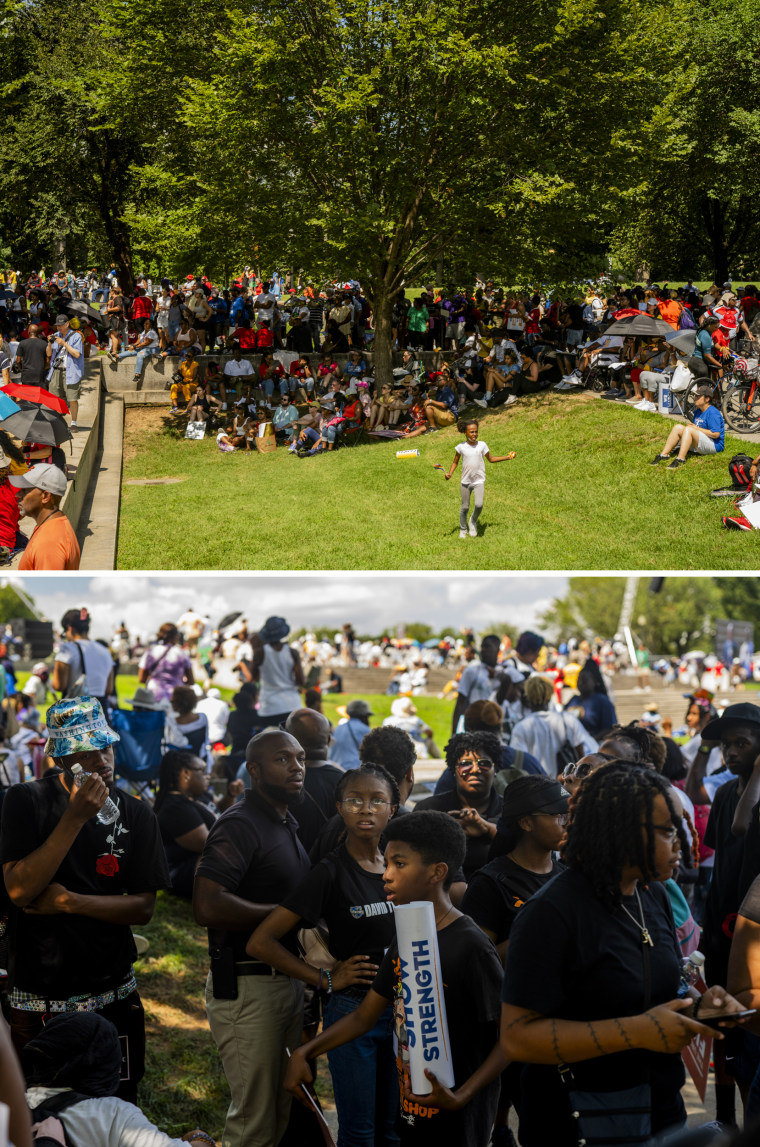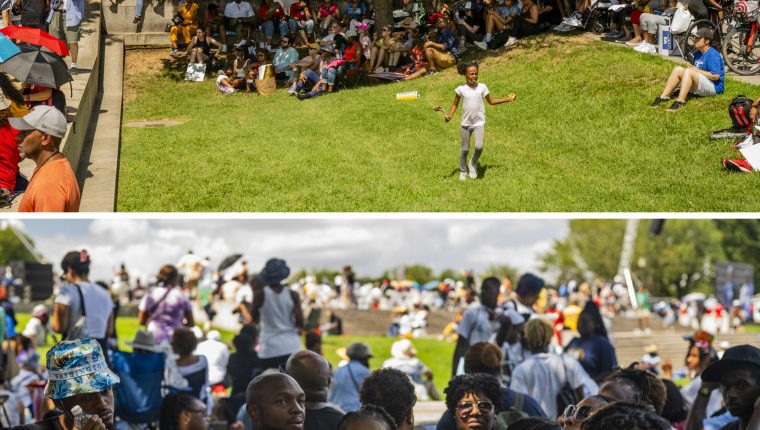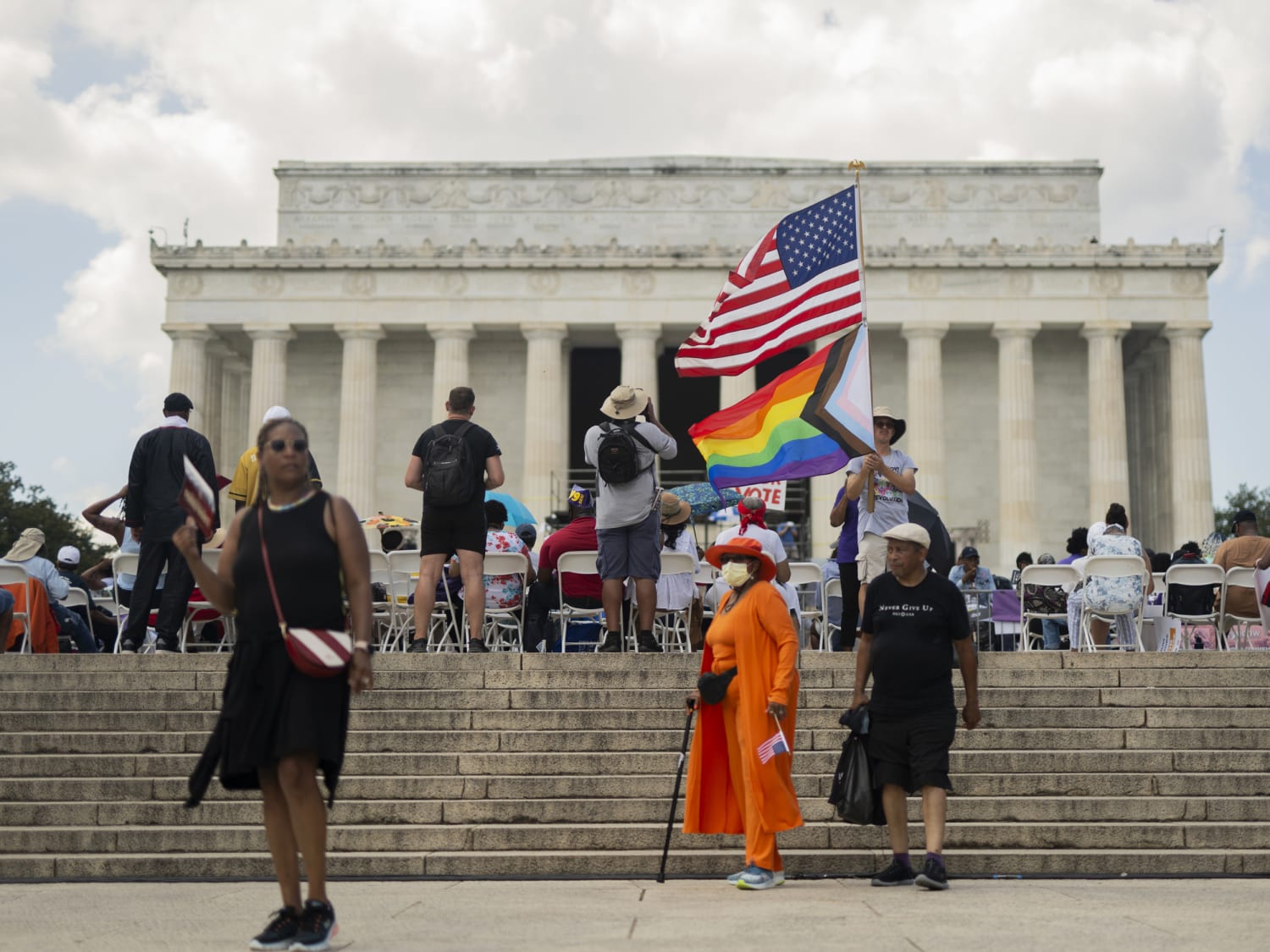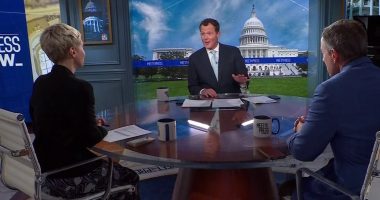Sharpton, the rambunctious minister who has been a civil rights leader for decades, ended the four-hour event under a pale blue sky mixed with billowy clouds in typical Sharpton fashion: With the vigor of a pastor.
“Today was a day to show our strength — thousands of you, 60 years later, are here to say that we are the continuation of a movement,” he said.
“Sixty years ago, Martin Luther King talked about a dream. Sixty years later, we’re dreamers. The problem is we’re facing the schemers,” he said, invoking Donald Trump. “The dreamers are fighting for voting rights. The schemers are changing border regulations. The dreamers are standing up for a woman’s right to choose. The schemers are arguing whether they will make you stop at six weeks or 50 weeks.
“The dreamers are saying that if you’re LGBTQ or trans, you have a right to your life. The schemers are saying we’re going to make you look like you’re something that should not be tolerated in human society … The schemers are being booked in Atlanta, Georgia, in the Fulton County jail. The dreamers will win. The dreamers will march. The dreamers will stand up. Black, white, Jewish, LGBTQ. We are the dreamers. We are the children of the dream.”

Sharpton, Martin Luther King III and others then led supporters on a march in the 90-degree heat from the Lincoln Memorial to the King Memorial. For 18-year-old Karim Martin of Cleveland, the march was an affirmation.
“I came here because I see racism in my school, in my city, on the news,” Martin said. “The one thing I learned is that what I’m going through is not just where I live. There are the same problems all over the country. This can’t be all right. We all have to do something. Plus, it’s pretty cool to be where Martin Luther King was. It’s inspiring.”
Jon Rather, a government worker near Fort Worth, Texas, said he came with anger but left feeling hopeful. “We are still talking about the same stuff from 60 years ago,” Rather, 53, said. “That’s crazy. It’s disappointing. After all this time, after a Black president, after so much progress, we still have to get together and talk about voter suppression and our history being taught in schools? About police brutality?”
But he said former U.N. Ambassador and civil rights figure Andrew Young’s speech, which partly centered on focusing on the progress over the concerns, settled him.
Source: | This article originally belongs to Nbcnews.com









